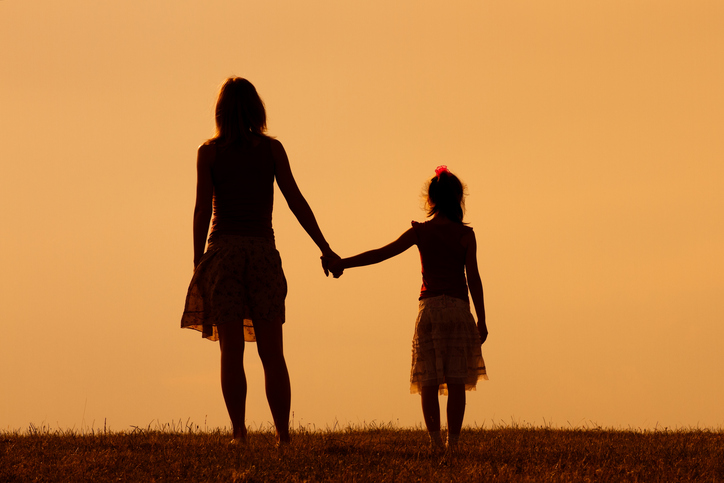
I have no direct connection to Ruth Bader Ginsburg, but I read something today in a New York Times op-ed that made me feel I understood something about her. Both our mothers died when we were teenagers, and events connected to mourning them influenced our feelings about religion.
When she was 17, RBG lost her mother. And she, Jennifer Weiner wrote, began to separate herself from Judaism when she was denied a place in a minyan—a group of ten—that performed the ritual mourning prayers. A group of 10 men, that is. A daughter’s prayers were not as “kosher” as those of some random man.
Having attended an Orthodox synagogue and Sunday school when I was a girl, I was well aware that men and women were kept apart in shul. Once I hit puberty, I was no longer allowed to go to the front where the men sat to visit my father. In Rabbbi Twersky’s tiny shul, there was no women’s balcony. The women were relegated to the back, away from the bima and the Ark holding the Torah. The rebbetzin sat in the first row in the women’s section, and I would watch her as, several times during services, she would push aside the white curtain that delineated the division of the sexes to peek at what was going on up where the action was.
At some level I must have absorbed as a child the obvious evidence that women were considered less-than in my religion (and I know there’s a “separate but equal” argument regarding being a wife and mother). But I liked sitting with my mother and sister and the neighborhood girls and women, liked the many holidays that required us to gather together, even though I never got the prayers down pat.
I knew that in life outside the synagogue women were at least as valuable, as powerful, as men, and not just because they were balabustas expert at keeping house. My father was actually something of a neat freak and did a lot of the cleaning and other household chores, besides usually working two jobs. My mother, though, was clearly in charge of our lives. I went to school with girls and boys and saw girls were as smart as, or smarter than, many of the boys. The majority of my experience outweighed what went on at Rabbi Twersky’s.
In fact, the Rabbi himself once complimented my intelligence. One Sunday morning when I could not have been more than four (because my religious studies switched over to the ritzier Young Israel at five), I apparently asked if the Abraham he was talking about was the same one I knew of more formally as Abraham Lincoln. He was so impressed that I’d made the connection he told my parents, who, in turn, told me. As I am, now, telling you. (That Abraham mix-up actually came up again at my wedding 25 years later, a story for another time.)
Judaism, of course, is not the only religion with sexist foundations. But surely RBG was influenced by her early experience in synagogue. She built a career fighting gender inequality. But for her, if what I read is true, as for me, the real break with religion (though never with pride in being Jewish or trying to live by Jewish values) came at her mother’s death.
When I was 18 my mother died during Sukkot, the week-long holiday that starts this year on Oct. 2. Because of that, the Rabbi informed us, we—my father, sister and I—were not permitted to sit shiva. Really? A holiday celebrating the harvest was more important in 20th-century New York City than grieving a parent? My parent? Sukkot is designated as a time for rejoicing. We, our friends and our community, in which my mother had been so well liked, were not in the mood. The strictures of shiva—such as sitting on low wooden benches and not engaging in any pleasurable activities—allow us to enact some of the pain we are feeling. They are ways to show respect. And I, with all the indignation of a teenager, couldn’t accept a system that denied this to us in a way that was, to me, so unfeeling and unbalanced.
Learning about RBG’s sorrow hit me right in the heart, and I feel mine all over again, especially because this time of year is still difficult for me—half a century after my mother died. Maybe giving up the observances of Judaism was a lifelong act of mourning for the two of us. Or of anger at the unfairness of our mothers’ early deaths. Or both.
Now as I and so many millions of others mourn Justice Ginsburg, I have another cause for anger—the disrespect to her legacy shown by the rush to throw it away, before she was even in the grave. May her memory, and our mothers’ memories, be for a blessing.

